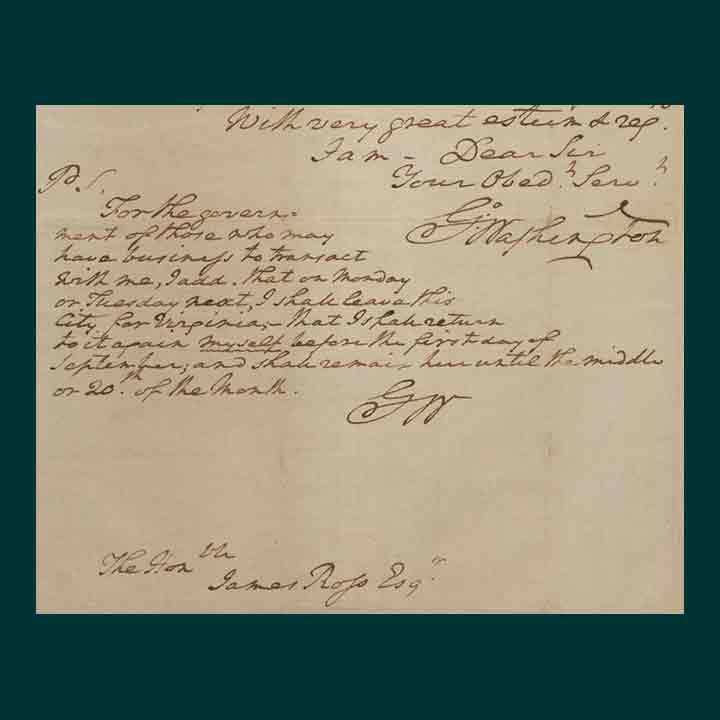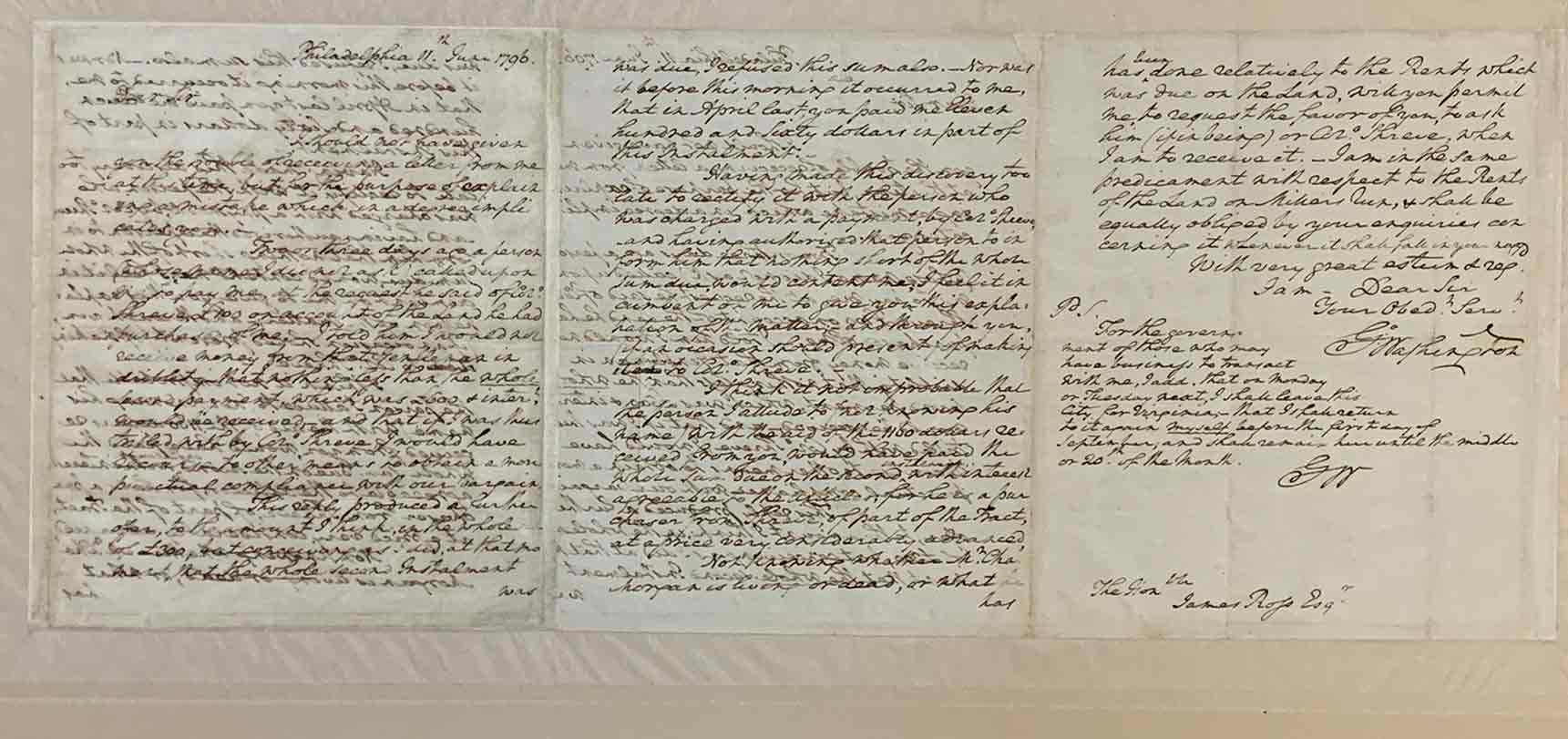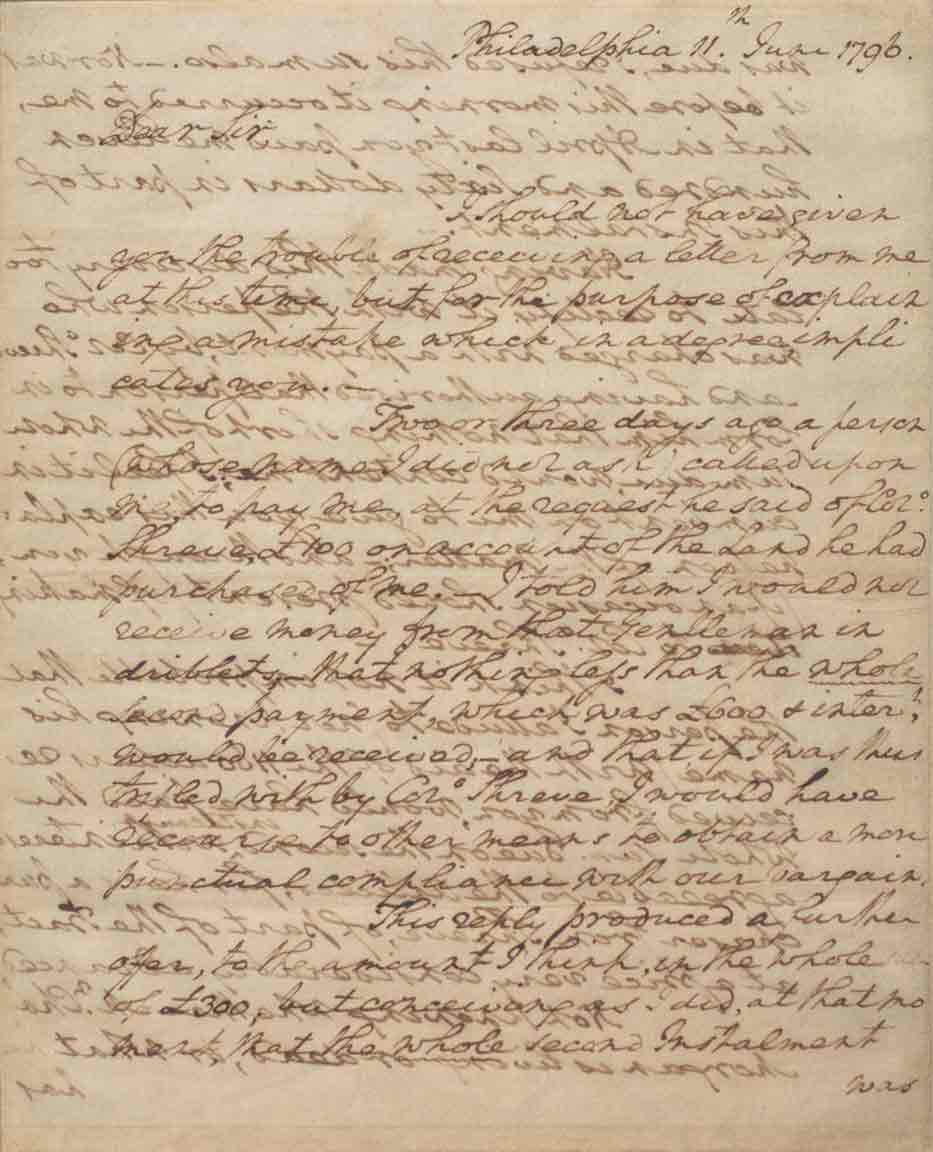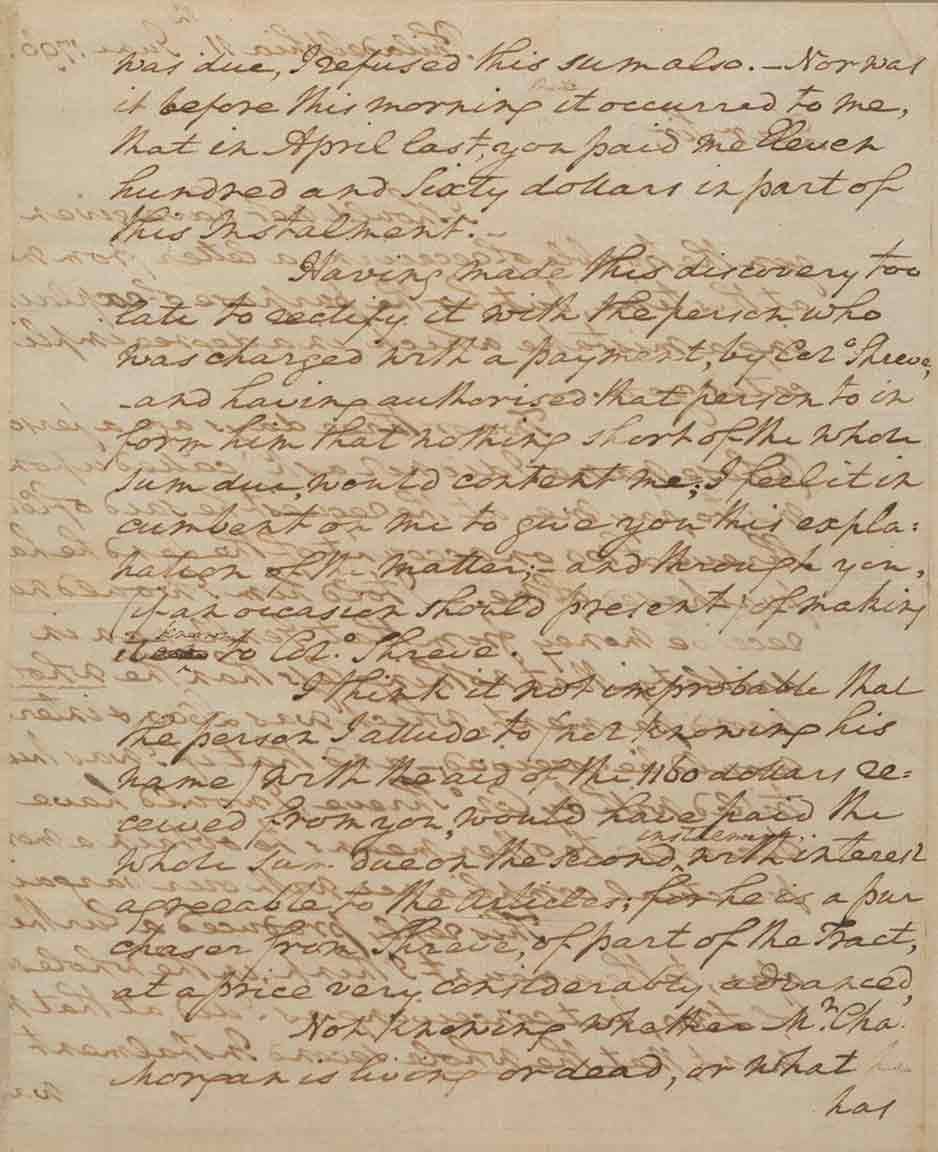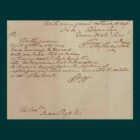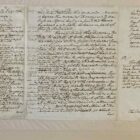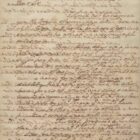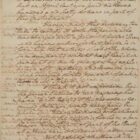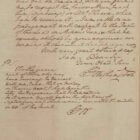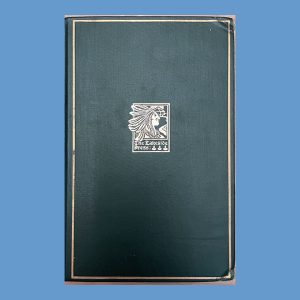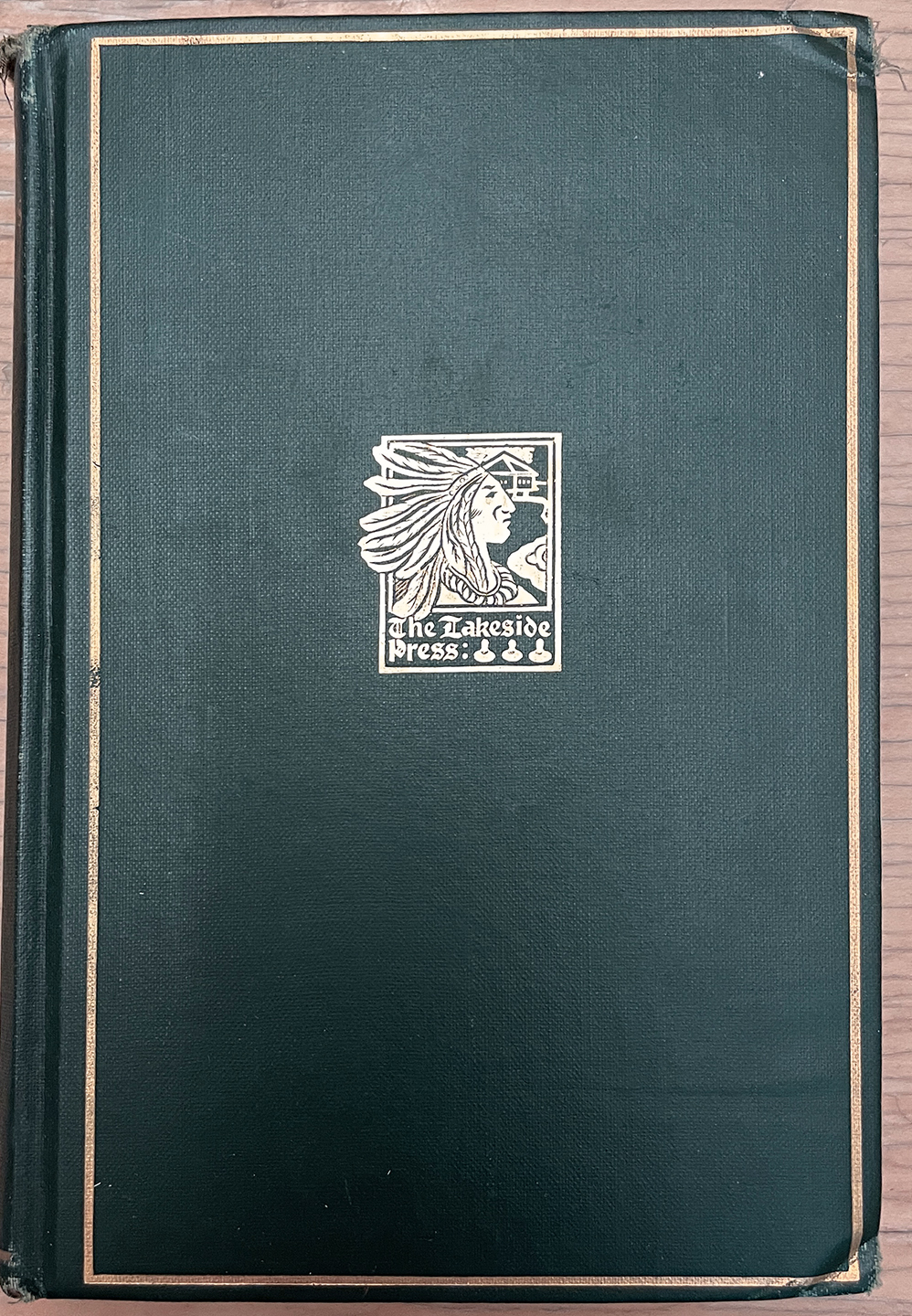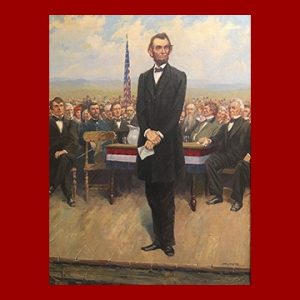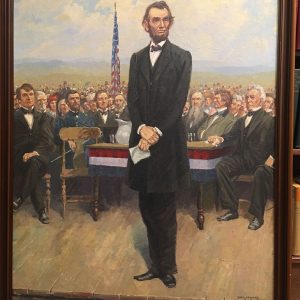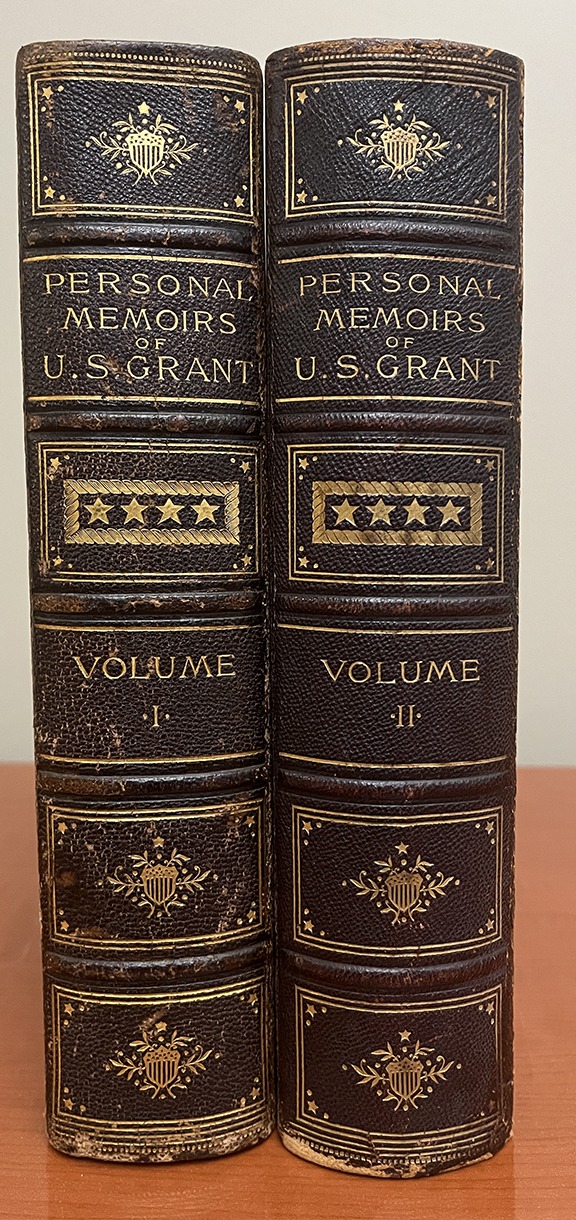George Washington, Autograph Letter, Signed
$55,000.00
Rare to See Washington Emotions–
He is Irritated and Frustrated
This product requires special shipping considerations. Shipping and insurance charges are additional.
Questions
Call (312) 944-3085 or email us here.
Reserve ItemDescription
On 1 Feb. 1796, in debt and needing money, George Washington advertised for sale four tracts of land on the Ohio River, totaling 9,744 acres, four tracts on either bank of the Great Kanawha River just above its confluence with the Ohio, totaling 23,266 acres, and three tracts on the Little Miami, totaling 3,051 acres. These were all bounty lands allotted in the 1770s under the terms either of Robert Dinwiddie’s Proclamation of 1754 or of the royal Proclamation of 1763, for service in America in Britain’s war with France between 1754 and 1763.
Needing to sell land to pay for “presidential” debts, one transaction proved particularly trying to the President, a sale to Colonel Israel Shreve (see below). Senator Ross executed the Articles of Agreement for the transaction on Washington’s behalf, but almost immediately, Ross fell behind in his payments and was in arears. To make matters worse, it seems Shreve sold off a portion of this land, making a profit but still not paying Washington.
In this letter (full transcript available), Washington informs Senator Ross about “a mistake (which) in a degree implicates you.” The President goes on as how he had twice refused partial payments from a third party, threatening “I would not receive money from that gentleman in driblets…and that if I was thus trifled with by Col. Shreve I would have recourse to other means to obtain a more punctual compliance with our bargain.” But Washington had forgotten that in the previous April Ross had paid him an installment of the debt, “too late to rectify it with the person who was charged with a payment by Col. Shreve.” He goes on to ask “when I am to receive” the rent due.
In the postscript, Washington advises as to his whereabouts from the date of this letter through September. Very good with a large signature and bold, clear ink writing; but show-through of pages one and two. The three pages conserved and laid-out next to each other horizontally on a rag backing so all face up; matted to 27” x 14”; ready for framing.
Washington, George. Autograph Letter, Signed “Go: Washington” AS PRESIDENT. Philadelphia: 11 June 1796. To The Honorable James Ross Esqr. 4to; 2-1/2 pages + postscript signed with initials, “GW”.
More on the Other Parties….
James Ross (1762-1847) was a lawyer helping Washington with this sale of land. Ross lived in western Pennsylvania and represented the state in the U.S. Senate from 1794 to 1803. During his tenure, he served as President pro tempore of the Senate from March to December 1799. President George Washington had appointed him to negotiate with the rebels of the Whiskey Rebellion, successfully defusing the situation without violence.
Israel Shreve (1739 –1799) had been a colonel in the 2nd New Jersey Regiment during the American Revolution. He fought at the Battle of Brandywine and at the Battle of Germantown and wintered at Valley Forge. Later he helped survey the western bank of the Mississippi, keeping a journal, in which he described geography, environment, and encounters with the Native Americans.
